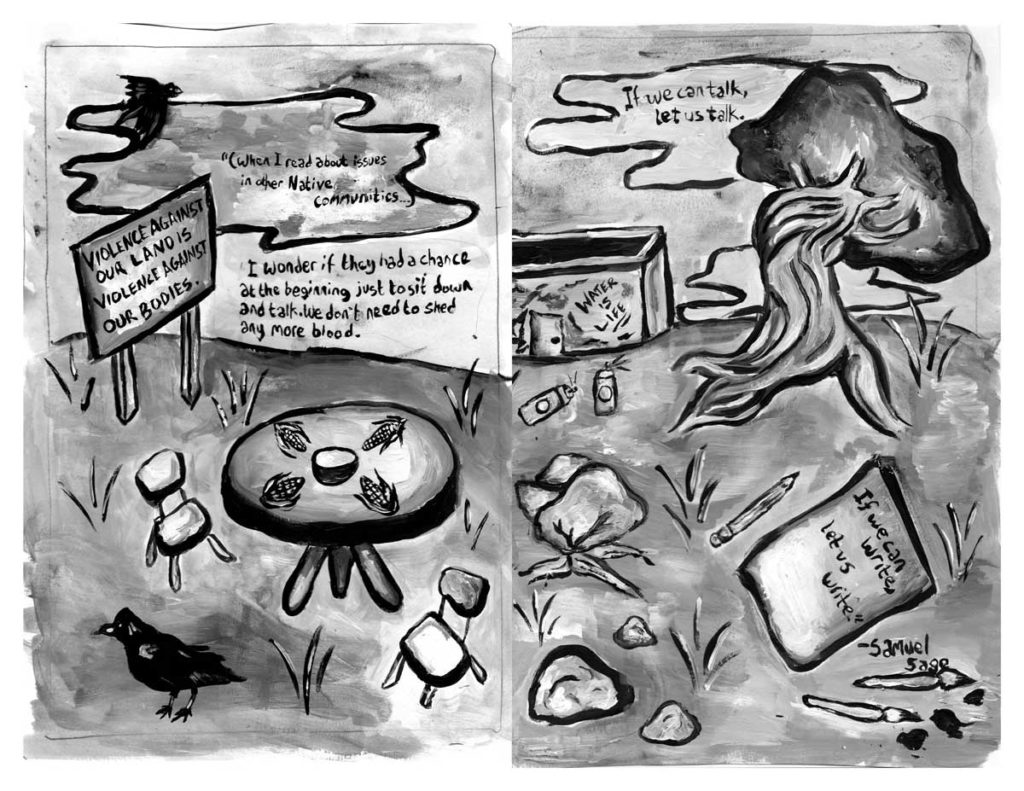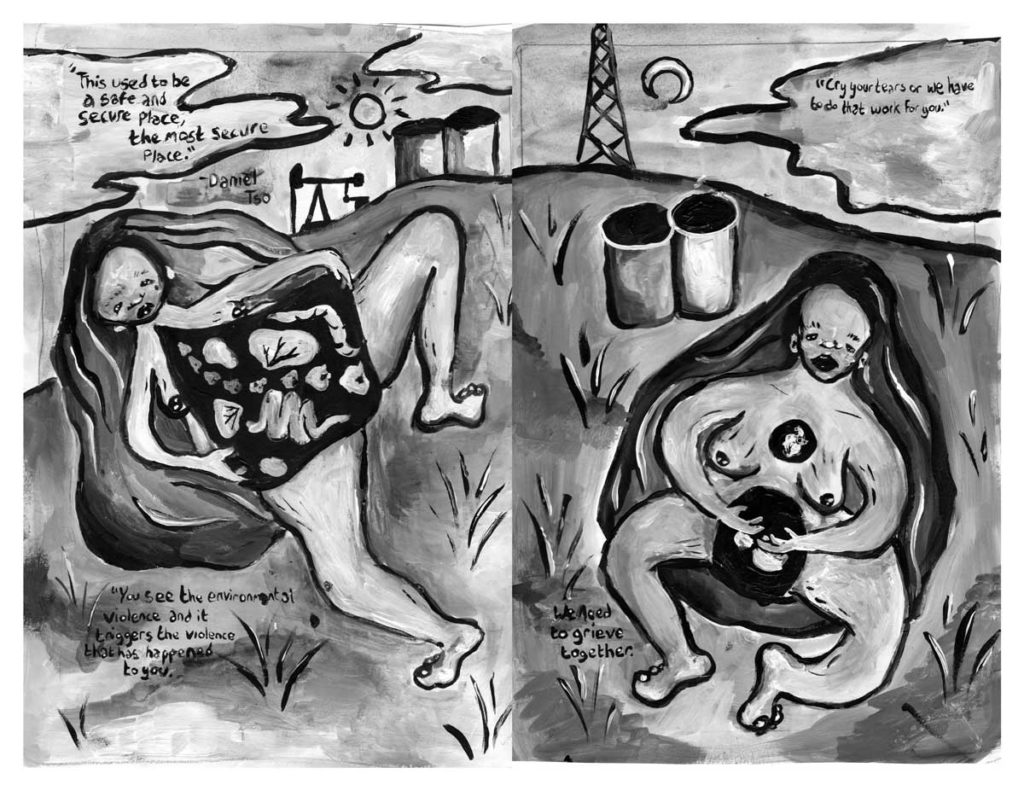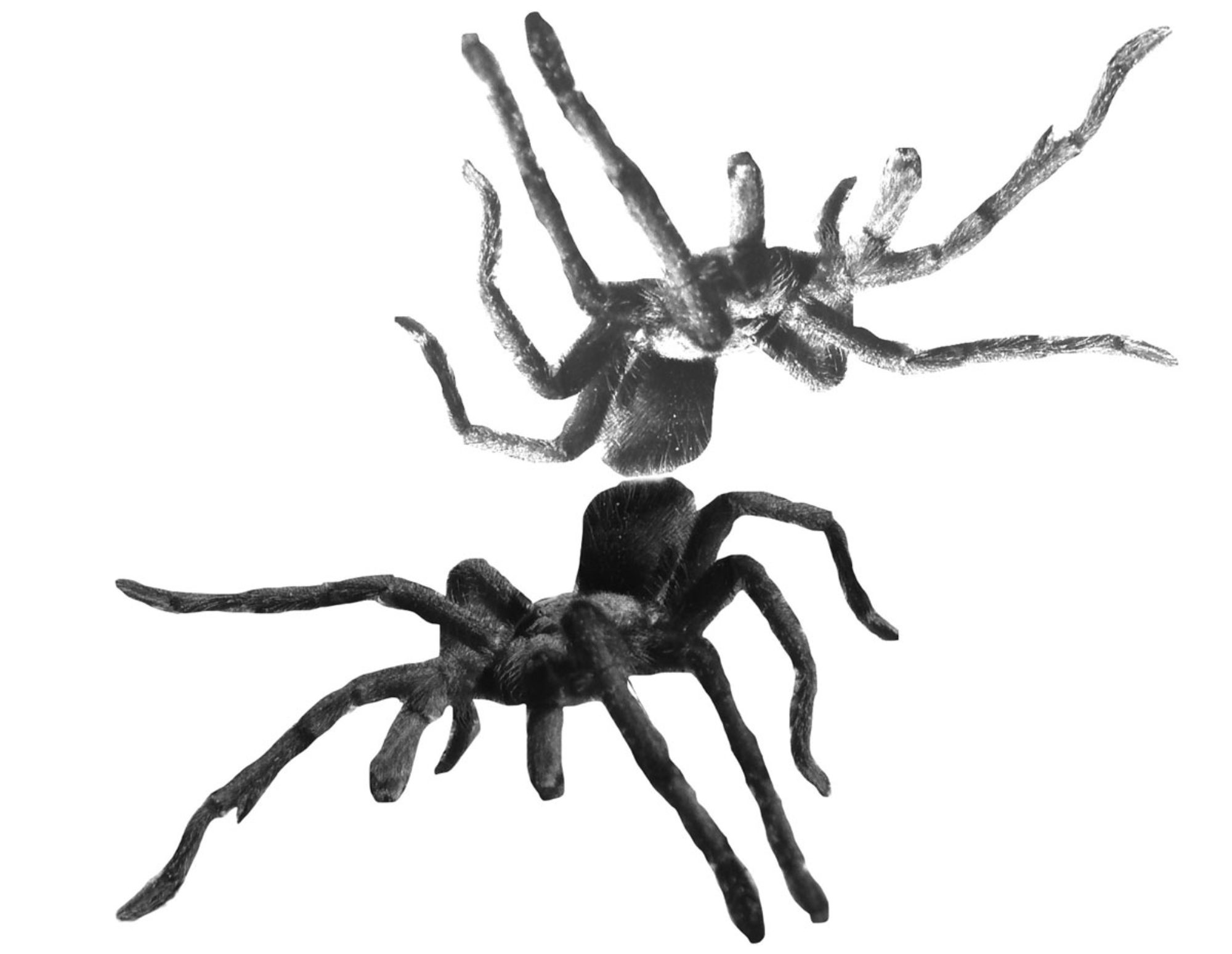
We have received many comments and statements of outrage and solidarity as we continue to build public support against this censorship and ask others to join us through signing our petition. We would like to share a few here.
“The museum needs to issue an apology and explicitly state in their policies that they do not discriminate or censor art for political content, especially when it is true artistic collaboration that reflects the societal issues of our time, and is lifting up the voices and perspectives of this place. I am extremely disappointed in the actions of people responsible who actively worked to suppress my voice and others, and there needs to be some accountability and ownership to who made these decisions. As Native Peoples whose world-views and roles as caregivers are constantly trying to be heard, seen, and equally valued in the midst of state enacted environmental violence, it is important that this issue is taken seriously.”
-Beata Tsosie Peña, Tewa Women United and Santa Clara Pueblo
“No art should be censored in America. The Public should not be infantilized. To underestimate the intellectual capacity and elasticity of the public is shameful. American audiences have the right to read different and diverse opinions, to information in all forms.”
– Ernesto Pujol, artist, educator, writer
“I sign this petition as a descendent of New Mexico heritage, an Indigenous person, and an artist who is deeply concerned about the current state of water access and pollution. It is a violent gesture for your museum to censure the voices of those who are fighting for their rights to their land and for the health of their water resources, equal to the violence that has been inflicted on the first communities of the land in which your museum is situated.”
– Christine Howard Sandoval, artist and educator
“Museums today are important sites of civic conversation about social and political, as well as aesthetic, issues. That is why it is very disturbing that the New Mexico Department of Cultural Affairs (DCA) recommended the removal of a poetry zine from The Social & Sublime: Land, Place, and Art, an exhibition at the New Mexico Museum of Art (NM MOA), because “all the poetry in the zine relates to…political commentary on fracking”. The DCA claims that distributing the zine “would be considered using state property to support [a] political cause.” DCA referred to a governmental conduct act prohibiting “a public officer or employee from …using property belonging to a state agency or allowing its use for other than authorized purposes.”
The exhibition focused on “issues of land use, expansion and border conflicts, and industrialization and the conservation of natural resources.” These are all clearly political issues, which, as the exhibition description states, are explored through lenses “ranging from the purely formal to the politically engaged.”
A zine dedicated to poetry about the impact of fracking on the local community neatly fits within the parameters of the show. Indeed, a number of works in the show also took political positions, as art often does.
It seems clear, then, that the concern was not the fact that the work took a specific political position, but the nature of that position. Created as a collaboration between artists from the Land Arts of the American West project, visiting artist Asha Canalos and local community organizers from the Greater Chaco Coalition, the zine is a condemnation of the devastating impacts of fossil fuel industries, and specifically fracking, on communities, ecological systems, and the climate within New Mexico. In a state highly dependent on the fossil fuel industry, this is a controversial position. But a publicly-funded institution cannot discriminate against specific political positions, no matter how unpopular: such discrimination would violate the First Amendment.
We urge NM MOA to adopt a formal policy affirming artistic freedom, including the right of artists to voice political opinions without fear of being silenced. The museum should also make it clear that exhibiting political artwork does not mean that the institution itself endorses specific political positions. This is the only way MN MOA can remain a site of encounter with new and radical ideas, a site where social and political dialogue happens, not become a place of pure entertainment governed by political censorship.”
-Svetlana Mintcheva, Ph. D, Director of Programs, National Coalition Against Censorship
“As an activist artworker for some sixty years, I am appalled at the censorship of the Greater Chaco Art Zines, which I have seen and much admire, having written a book (with Peter Goin) on Chaco/Mesa Verde. I hope whatever misguided policy was operating at that time has been removed. These artists are ‘fine’ artists as much as anyone else exhibiting at the NMMOA.”
– Lucy R. Lippard, writer, curator, activist.

